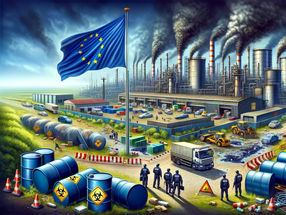REACH reveals the companies behind the SIN List chemicals
Advertisement
The EU chemicals regulation REACH provides new information about the production and use of chemicals in the EU. Companies from a wide range of sectors around the world have registered their production or imports of chemicals with the European Chemicals Agency, ECHA. Previously ECHA refused to make this information publicly available, and it is only following a lawsuit filed by ChemSec and ClientEarth with the European Court of Justice that ECHA started to disseminate this information in late 2012.
"A less toxic world can only be achieved by greatly increased transparency in the chemical sector. We are therefore very pleased that we now have solid and up-to-date information about European chemical production", says Sonja Haider, ChemSec business and investors advisor.
ChemSec presents compiled information about the companies that have registered production or imports of the chemicals on the SIN List. These are chemicals that are, for example, carcinogenic or impair reproduction, but are still present in many consumer products such as detergents, paints and toys. The SIN List contains chemicals identified by ChemSec as fulfilling the criteria for Substances of Very High Concern as defined in the REACH regulation, and therefore likely to face future EU bans.
"Many companies claim to be sustainable, but still produce SIN List chemicals. However sustainability within the chemical sector clearly also needs to extend to the core business, which is the chemicals portfolio", says Anne-Sofie Andersson, ChemSec director.
Information about producers of SIN List chemicals, and in which countries they operate, has been added to the publicly available SIN List database. ChemSec also presents two new publications, one that specifically lists the stock-exchange-listed companies that put the SIN List chemicals on the EU market. These publications also for the first time lists which chemical companies produce the substances that are included on the REACH candidate list.
"We believe that a wide range of stakeholders will find this new data useful, for example it is now easier than ever for financial investors to include the production of chemicals in their investment analysis. Besides the environmental and human health benefits there are clear market opportunities for companies that develop less hazardous chemicals portfolio alternatives", continues Sonja Haider.





























































